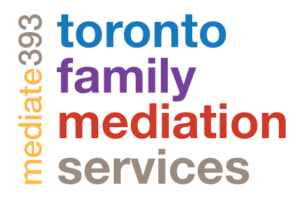What does an Information & Referral Coordinator Do?
06.11.2024
By Montana Schott, summer intern

Montana, in her third semester of Humber College’s Dispute Resolution Program , is spending her summer shadowing the Information & Referral Coordinators in Toronto’s family courts, among other things. She will be writing a series of blog posts sharing what she is learning. This is her first post.
I have seen a genuine dedication to assisting people through a very difficult time in their lives. The IRCs I have observed embody what it is to go above and beyond.
In my first day I spent time shadowing an IRC in the Family Law Information Centre at the Toronto Superior Court of Justice, 361 University Ave., ground floor.
I witnessed how thankful people are when they receive this type of service. Every person who came into the FLIC was extremely grateful for the help the IRC provided, even if it was simply directing them to a computer and showing them how to access the files they need. It was when someone came in with a more challenging request that IRC’s dedication can be seen.
One person came in seeking assistance with divorce paperwork with another party in another country. English was not their first language, and they were having difficulty understanding so the IRC quickly made use of translator technology to ensure the client was understanding everything. When they weren’t sure how to fill out a form properly the IRC made use of another resource available to them, Bill Lasovich from the court office. This individual came and not only explained the information that was needed from the client, but why it was required so that they understood the purpose.
Frequently people would arrive to the FLIC right as it was closing or even after it was closed. Instead of letting people stand outside frustrated, if the IRC staff was there, they still asked them through the door what they were trying to accomplish so they could let them know where to go or when to come back. Sometimes it isn’t even our services they need, like the individual who needed to file his documents or the person looking for the bathroom, but the IRC was kind enough to assist them all the same.
When returning calls to those who had left a voicemail I watched an IRC take great care to determine how comfortable one individual felt in their current living situation to assess whether they needed a referral to Barbra Schlifer clinic. It was clear their main goal was to ensure that this client was aware of all the resources available to them that they needed or would benefit from.
There is much to remember as an IRC, as there are many different forms alone that people will come in requesting assistance with. With another client the IRC walked with them to the court clerks to ensure they knew the right information to include on a form. IRCs are very diligent to ensure they are only providing legal information to those who need their services, and not legal advice. An element of the job that is equally important is the disposition of the IRC. IRCs have a calm demeanor and utilize this to both better serve the people in need and help them calm down. They also have a positive disposition that they use to make the process as light as possible because they recognize the variety of emotions that people might be entering the FLIC with.
Whether it is utilizing their emotional regulation skills, or the other staff at the courts IRCs are experts at using the resources available to them to best serve the public.

